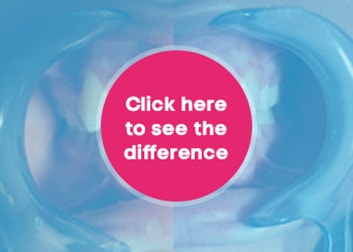Pros and cons of dental treatment abroad
Even if most people do not think of going to the dentist as their idea of a holiday, the idea of dental tourism is spreading quickly. Dental tourism involves travelling to a foreign country for dental care. In many countries, fees for dental treatments are around half of what they would cost in the UK. For many people, this can mean big savings, especially if they don’t have any dental insurance because many treatments are classed as cosmetic procedures, which are not covered by a regular policy.
Nowadays it's very easy to find practices which can provide dental care abroad. There are many dental gateways which are advertised by travel agencies. The most popular destinations right now are Hungary, India, Mexico, Poland, Turkey, Singapore and Thailand.



People read a lot of horror stories in the tabloid press about Britons who have had dentistry done overseas and have been given unsatisfactory or even dangerous treatment by unqualified dentists with a rudimentary grasp of English. Of course, making snap decisions about important questions when armed with insufficient information and coping with language difficulties can cause unpleasant situations. Putting your wealth ahead of your health is also a recipe for disaster. On the other hand, only bad stories tend to make it into the news. The tens of thousands of people per year from the UK who decide to have their dental treatment abroad can’t all be flying off to dental care hell. They have made an informed choice to save time, money and perhaps get cosmetic work done, work which is not usually covered by the NHS. If you ask around your acquaintances who have been treated by a foreign dental practice, you’ll probably find a high degree of satisfaction. But let’s take a look at the real facts. What are the pros and cons of dental tourism?
ARGUMENTS AGAINST
The materials that are used in making prosthetics and fillings are subpar compared to the good old British materials.
The dentist and staff may not speak proper English, and thus you may find yourself getting a procedure that is not what you asked for. The negotiation of pricing may also be an issue if the person you are bartering with does not speak your language.
Guarantees cannot be validated, as taking a trip back to the host country would mean loss of more money, making the choice of treatment redundant, counterproductive and/or pointless, as it will not save money at all.
Budapest is too far away. Having to cross the channel is a pain, and the amount of time you waste makes it not worth it.
Travelling abroad for dental treatment is only worth it if you are getting some procedure that is expensive and complex; small treatments are simply not worth it.
ARGUMENTS IN FAVOUR
Like all clinics that deal with dental tourism, we work with only the best materials. We use quality materials in our Budapest dental clinic - no flimsy materials, but the same ones you are used to.
Our staff members all speak English, , and our dentists are also tested to see if they meet our very high standards of spoken English. Call our multilingual customer care staff and come in for a chat with one of our dentists, the same one who will be providing his or her services to you in Budapest.
It is true that popping over to Budapest for a filling is, economically speaking, definitely not worth it, but if you are getting something more complex, it is, and certain procedures may make it more worth it than others. Come in to our Budapest office and have a consultation, and ask for the prices as well.
Before after

Name: John
Age: 36
Treatment: Broke tooth
Veneers are not only for people who want to change the form of their teeth or consider any other cosmetic dental procedures. Veneers can help partly broken teeth the same way. Dr Ehreth helped her patient with a veneer solution. See for your self.
Registration
Register for dental checkup!
-
How To Find The Best Dentist In Budapest
- 2019. October 05
-
Should I Get My Dental Implants Abroad? Questions You Should Ask
- 2019. September 19
-
The Forest & Ray Dental Clinic In Budapest: Why You Should Get To Know Us
- 2019. September 05
-
Dental Destination: Why Budapest Is Best
- 2019. August 21
-
Questions About Receiving Dental Implants Abroad
- 2019. August 05



